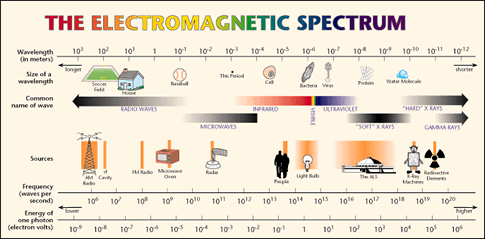MASINT- Why the IC Isn't Taking it Seriously
MASINT is a new, interesting, and powerful means of intelligence collection. A product of the 1970s, MASINT has since developed into a critical intelligence discipline despite being arguably the least well-known. Since it is (relatively) new and the supporting technologies still developing, MASINT as a collection discipline will need to overcome challenges in the years ahead as it finds its place in the Intelligence Community (IC).
Talent Management: MASINT offers a powerful and sometimes unique view of targeted material. Since the collection platforms are so technologically advanced and require extensive training to use and maintain, it is difficult to balance the talent of involved individuals. Integrating university researchers into the IC appears a popular strategy, but keeping them in R&D too long reduces the number of experts available to actually do the collection. Conversely, keeping them away from R&D too long means they will fall behind on research and potentially delay development of new technologies (Goodman, 2009, 242).
General Lack of Awareness: Other intelligence platforms are well-understood within the IC. They are popularized by exposure in media, movies, and well-recorded in literature. MASINT is an exception in this regard. MASINT is relatively new and highly technical. To be maximized in terms of effectiveness, the IC, as a whole, needs to build a better understanding of the discipline; this includes the military (Lynn, 2012, 20-2). A potential solution is to make MASINT a more serious discipline within the military. It tends to fall somewhere between SIGINT and GEOINT, which is a disservice to the discipline. If MASINT were made an MOS and MASINT collectors placed in units (obviously at very high echelons), it would create a talent-management pipeline and put the discipline in front of commanders, increasing awareness.
Corroboration: Most disciplines complement each other and corroborate reporting. MASINT is unusual in that it is difficult to corroborate with other disciplines. Sometimes, MASINT collection offers an unambiguous signature to analysts which is only detectable by MASINT platforms (such as radiation. It is not easy to get a HUMINT asset to report radiation levels in an area that is highly irradiated). As a result, MASINT sometimes constitutes the only collection available to decision-makers, which may or may not be challenging depending on the ambiguity of the signal in question (Mugalero et al, 2001, 236-9; Richelson, 2001, 150).
Weak Categorization: Guidelines still are not clear as to what constitutes MASINT; it is in fact easier to identify things that are not MASINT. In fact, the definition of MASINT basically boils down to “SIGINT-like things that are not COMINT, ELINT, of FISINT.” This means that MASINT becomes the “catch-all” for new types of collection that don’t have a home (Richelson, 2001, 166). This by itself is not a problem. The problem arises when decision-makers must create roadmaps and allocate funding for programs that have unclear identities and are likely to continue picking-up evolving technology-heavy means of collection.
References
Goodman, Michael S. “Jones' Paradigm: The How, Why, and Wherefore of Scientific Intelligence.” Intelligence and National Security 24. No.2 (2009): 236-256.
Lynn, Connie. “Making the Most of MASINT and Advanced Geospatial Intelligence.” Master’s thesis, Marine Corps University, 2012.
Mugavero, Roberto, Federico Belloni and Valentina Sabato, “Challenges of Multi-Source Data and Information New Era.” Journal of Information Privacy and Security 11 (2015): 230-242.
Richelson, Jeffrey T. “MASINT: The New Kid in Town.” Intelligence and National Security 14, no.2 (2001): 149-192.

This is an interest choice for a discussion topic. Just to add my two cents, nobody takes it seriously, because nobody knows how to use the capabilities or knows that the capabilities exist in the first place. Good news though, the application of MASINT related technologies is slowly finding its way into practical civilian applications.